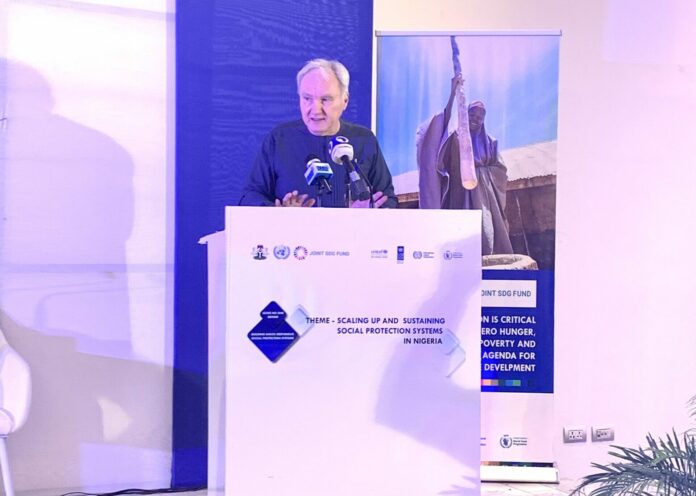According to Ms Badmus-Busari, the $2 million was invested in cash transfers, capacity buildings, health insurance and operational and overhead costs.
By Chiamaka Okafor,
The United Nations through its joint programme on social protection has spent $2 million in Nigeria, Faizat Badmus-Busari, the manager of joint Sustainable Development Goals (SDG) projects in Nigeria, has said.
The programme was funded by “the joint SDG fund which is provided to different UN secretariats, obtained from donations from different countries …they provided us with $2 million to implement this project, the project was implemented at both federal and state level,” she said.
According to Ms Badmus-Busari, the $2 million was invested in cash transfers, capacity building, health insurance and operational and overhead costs.
She noted that 600 pregnant women out of the 6,000 beneficiaries of the programme received N5,300 each in cash transfers as transportation reimbursement.
The social protection project was implemented jointly by four UN agencies: World Food Programme(WFP), United Nations Children’s Fund (UNICEF), International Labour Organisation (ILO) and the United Nations Development Programme (UNDP).

The two-year project, which closed out on Friday in Abuja, supported the institutionalisation of social protection in Nigeria by developing a social protection bill.
Matthias Schmale, UN resident and humanitarian coordinator in Nigeria, speaking at the event, said he hopes that the Nigerian government will continue to prioritise social protection; “this means having clear policy; there is a national policy that needs to be replicated at state level, putting money into it…”
When asked if cash transfers will be the golden bullet to lift Nigerians out of poverty, he said cash transfer is just one measure that is needed. If Nigeria wants to lift almost 100 million people living below the poverty line out of poverty, the key is the economy.
“We have to find ways of revitalising the economy, that means creating jobs because social protection at the end of the day, is a measure in the absence of having a job and I think the critical thing is fixing the economy and that is not going to be done in the short term,” Mr Schmale said, adding that lifting 100 million people out of poverty will take a couple of years if we are serious about it.
A beneficiary of the project and secretary of the national joint association of persons with disability, Mukhtar Sani-Doki, said the project has impacted the lives of persons with disability.
He said persons with disability have always been included in the project and have access to free health care services and education.

“Before, we had a lot of children with disabilities in Sokoto State who were out of school but they are now enrolled in school,” Mr Sani-Doki said.
Peter Hawkins, UNICEF’s country representative, said the project tried to ensure that at the state level where social protection is crucial, states have the right policy and mechanism to be able to help women and children to access services in a more friendly manner.


